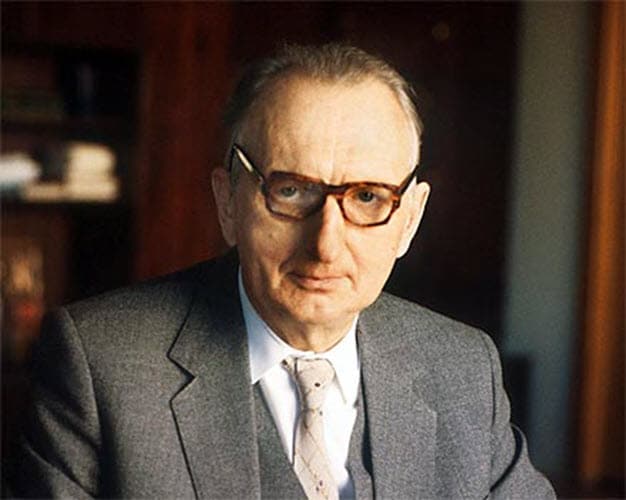The Life and Achievements of Alexander Prokhorov

Alexander Prokhorov (11 July 1916 – 8 January 2002) was an Australian-born Russian physicist. He was awarded the Nobel Prize in Physics in 1964.
Early Life And Education
Alexander Prokhorov, born Alexander Michael Prochoroff on July 11, 1916, in Atherton, Queensland, Australia, was the son of Russian revolutionaries who had emigrated to escape tsarist repression. His early years were spent in Australia until 1923 when his family returned to Russia following the October Revolution. Prokhorov’s educational journey began at the Saint Petersburg State University in 1934, where he pursued physics and was influenced by prominent professors like V.A. Fock and S.E. Frish. His academic excellence was evident as he graduated with honors in 1939 and soon after, commenced postgraduate studies at the Lebedev Physical Institute in Moscow. There, under the mentorship of N.D. Papaleksi, he delved into the study of radio wave propagation, which laid the groundwork for his future groundbreaking work in physics.
Career And Achievements
Alexander Prokhorov was a distinguished physicist whose groundbreaking work on lasers and masers earned him the Nobel Prize in Physics in 1964, which he shared with Nikolay Basov and Charles Townes. He served in the Red Army and was awarded three medals for his bravery. After the war, he returned to the Lebedev Physical Institute in Moscow, where he defended his Ph.D. thesis on the stabilization of frequency of a tube oscillator. Prokhorov’s research in the field of coherent radiation of electrons in a synchrotron led to his habilitation on the subject in 1951. His work with Basov on microwave spectroscopy resulted in the concept of a molecular oscillator, laying the theoretical groundwork for the creation of lasers. In addition to the Nobel Prize, Prokhorov’s contributions were recognized with the Lenin Prize in 1959, the Mandelstam Prize in 1948, and several Orders of Lenin. His legacy continues to influence the field of quantum electronics and the study of light.
Notable Events And Milestones
Alexander Prokhorov academic journey began at Saint Petersburg State University, leading to a distinguished career at the Lebedev Physical Institute in Moscow. During World War II, he served in the Red Army and was awarded for his bravery. Prokhorov’s scientific contributions are monumental, particularly in quantum electronics. His collaborative work with Nikolay Basov on the maser principle of amplifying electromagnetic waves laid the groundwork for the invention of the maser and laser. This pioneering research earned Prokhorov, Basov, and Charles Townes the Nobel Prize in Physics in 1964. Prokhorov’s work has had lasting implications for various industries and aspects of daily life. The development of lasers has revolutionized medical procedures, communication technologies, and even the entertainment industry. His research has enabled high-precision surgeries, the widespread use of barcodes in retail, and the global connectivity afforded by fiber-optic cables.
Moreover, Prokhorov’s influence extended into education and knowledge dissemination. He served as a professor at Moscow M.V. Lomonosov State University and contributed to the Bolshaya Sovetskaya Entsiklopediya, enriching the scientific understanding of students and scholars alike. His leadership at the Oscillation Laboratory fostered a generation of physicists who continued to advance the field of quantum electronics. Prokhorov’s legacy is not limited to his scientific achievements. He was recognized as a Hero of Socialist Labour and received the Lenin Prize, reflecting his status as a cultural and societal figure within the Soviet Union. His life’s work exemplifies the power of scientific inquiry to transcend borders and transform society.
The impact of Alexander Prokhorov’s work continues to resonate today, as lasers and quantum electronics remain integral to innovation and technological progress. His journey from a child of revolutionaries to a Nobel laureate encapsulates the transformative potential of dedication and intellect in shaping history. He died on 8 January 2002, in Moscow, Russia.
Awards And Honors
- Nobel Prize in Physics (1964): Awarded for fundamental work in quantum electronics which led to the construction of oscillators and amplifiers based on the maser-laser principle.
- Lenin Prize (1959): One of the highest awards in the Soviet Union for achievements relating to science, literature, arts, architecture, and technology.
- Mandelstam Prize (1948): Recognized for contributions to the field of physics.
- Five Orders of Lenin: The highest civilian decoration bestowed by the Soviet Union.
- Lomonosov Gold Medal (1987): Prestigious award given by the Russian Academy of Sciences.
- Demidov Prize: A Russian national science award established for outstanding contributions to the advancement of knowledge.
- Frederic Ives Medal by OSA: The Optical Society’s highest award, given for overall distinction in optics.
- Member of the Russian Academy of Sciences and the American Academy of Sciences: Honorary memberships acknowledging his significant contributions to the field of physics.
Additional Resources
Books:
- “Blackbody Radiometry: Volume 1: Fundamentals” by Victor Sapritsky and Alexander Prokhorov.
- For a comprehensive understanding of his work, the book “Film and Television Genres of the Late Soviet Era” by Alexander Prokhorov provides insights into the cultural context of his era.
Documentaries:
- While specific documentaries on Alexander Prokhorov’s life and work are not readily available, his contributions are often featured in broader scientific documentaries about the development of lasers and quantum electronics.
Museums:
- The MIT Museum has exhibits related to Alexander Prokhorov and his co-laureates, which include artifacts from the Nobel Prize ceremony in 1964.
- For those interested in a deeper dive, visiting the Nobel Prize Museum would provide a rich context to Prokhorov’s achievements and the significance of his work.
These resources offer various perspectives on Alexander Prokhorov’s life, his groundbreaking work on lasers and masers, and his impact on physics and technology. They serve as a starting point for anyone interested in exploring the legacy of this Nobel laureate.
Observer Voice is the one stop site for National, International news, Sports, Editor’s Choice, Art/culture contents, Quotes and much more. We also cover historical contents. Historical contents includes World History, Indian History, and what happened today. The website also covers Entertainment across the India and World.

